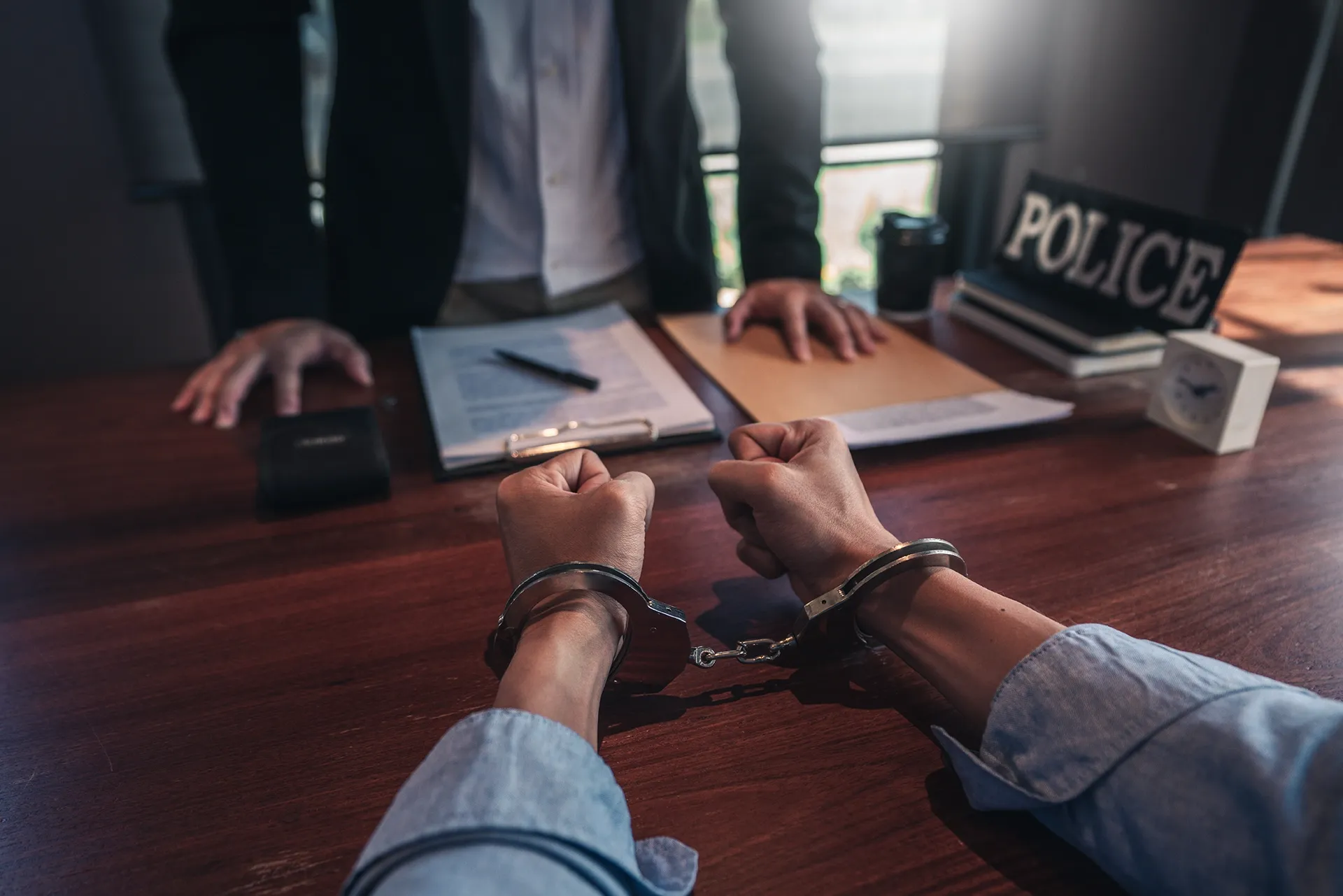The legal system can be an incredibly difficult process to understand and deal with, especially when it comes to choosing the right type of lawyer for your case. The choice between a criminal lawyer and a civil lawyer is one of the first and most important decisions you'll face when dealing with legal matters.
Criminal and civil law are distinct fields, each addressing different types of cases and requiring unique expertise. In this blog, we'll explore the key differences between these two areas of law and provide practical advice on how to choose the right lawyer to represent you effectively.
Understanding Civil and Criminal Law
Civil and criminal law are two fundamental areas of the legal system, each addressing different types of issues. Let's understand their distinction.
What is Criminal Law?
Criminal law is a branch of law that defines criminal offences, regulates the prosecution of individuals accused of committing these offences, and establishes the penalties for those found guilty. Criminal law deals with conduct that is considered harmful or dangerous to society, addressing various types of criminal offences such as theft, assault, fraud, and more severe crimes like murder.

What is Civil Law?
Civil law is a branch of law that deals with disputes between individuals, organisations, or entities, typically involving private rights and obligations. Unlike criminal law, which addresses offences against the state, civil law focuses on resolving conflicts and providing remedies to aggrieved parties.
What is a Criminal Lawyer?
A criminal lawyer is a legal professional who specialises in criminal law to defend individuals, organisations, or entities accused of committing crimes. Their primary role is to protect the rights of their clients and ensure a fair trial within the justice system. Criminal lawyers handle cases ranging from minor criminal offences to serious felonies. Some of the criminal cases they handle include:
- Misdemeanors
- Felonies
- White-Collar Crimes
- Driving Offences
- Homicide and Violent Crimes
- Sexual Offences
- Domestic Violence
- Juvenile Offences
Key Responsibilities of a Criminal Lawyer
The key responsibilities of a criminal lawyer include:
Legal Representation : Defending clients accused of a criminal offence, representing their cases in criminal proceedings, and advocating for their rights throughout the legal process.
Case Preparation : Conducting thorough investigations, gathering evidence, interviewing witnesses, and preparing legal documents to build a strong defence strategy.
Advising Clients : Providing expert legal advice to clients regarding their rights, possible outcomes, and the best course of action to take at different stages of their criminal law cases.
Plea Bargaining : Negotiating with prosecutors to reach favourable plea agreements that may result in reduced charges or lighter sentences for the client.
Court Appearances : Representing clients in various stages of the criminal justice process, including preliminary hearings, arraignments, motions, trial proceedings, and sentencing.
Trial Advocacy : Presenting arguments, cross-examining witnesses, and delivering compelling closing statements to persuade the jury or judge in favour of the client.
Ensuring Fair Trial : Making sure that the client's constitutional rights are upheld throughout the legal process, including protection against unlawful search and seizure, the right to remain silent, and the right to an attorney.
Legal Research and Analysis : Keeping up to date with the criminal law, case precedents, and legal procedures to effectively represent clients and guarantee compliance with current legal standards.
Ethical Practice : Maintaining client confidentiality, upholding the integrity of the legal profession, and acting in accordance with ethical guidelines and laws governing the practice of criminal law.
Appeals and Post-Conviction : Assisting clients with the appeals process if they wish to challenge a conviction or sentence, and providing guidance on post-conviction matters such as parole or probation issues.
What Does a Civil Lawyer Do?
A civil lawyer is a legal professional who specialises in civil law and handling non-criminal disputes between individuals, businesses, or other entities. Their primary focus is on resolving conflicts where one party seeks compensation or a specific legal remedy from another party. Civil lawyers play a key role in ensuring that disputes are addressed fairly within the legal framework. Some of the civil cases they handle include:
- Contract Disputes
- Property Disputes
- Family Law
- Employment Issues
- Personal Injury
- Defamation
- Business Disputes
Key Responsibilities of a Civil Lawyer
Civil lawyers specialise in handling non-criminal legal matters that involve disputes between individuals, organisations, or government entities. Their key responsibilities include:
Advising Clients : Civil lawyers provide legal advice to clients about their rights , obligations, and legal options regarding various civil matters. This can include contract disputes, property issues, personal injury cases, family law, employment law, and more.
Drafting Legal Documents : They prepare and review a range of legal documents, such as contracts, agreements, leases, wills, and other paperwork to ensure clarity, compliance, and protection of their client's interests.
Representing Clients in Court : Civil lawyers represent clients during court proceedings, presenting evidence, making legal arguments, and advocating for their client's position. They work to guarantee the client's case is well-prepared and presented in the most effective manner.
Negotiating Settlements : Many civil cases are settled outside of court. Civil lawyers negotiate with the opposing party or their legal representatives to reach a fair settlement that serves their client's best interests and avoids lengthy court battles.
Researching and Analysing Legal Issues : They conduct extensive legal research to understand civil law, regulations, and precedents that apply to their client's case. This helps build strong arguments and ensure compliance with legal standards.
Managing Documentation and Case Files : Civil lawyers maintain organised case files, tracking important dates and documentation related to the case. This includes filing necessary court papers and meeting deadlines.
Advocating for Client Interests : Whether in pre-trial negotiations or during court proceedings, civil lawyers work to protect their client's interests and achieve the best possible outcome. They must be skilled in persuasion and legal reasoning to advocate effectively.
Maintaining Confidentiality : Civil lawyers must maintain client confidentiality and protect sensitive information shared during consultations and throughout the legal process.
Ensuring Compliance with Legal Procedures : They ensure that all actions taken, including filings and court procedures, comply with applicable rules and laws to avoid procedural errors that could harm the client's case.
Client Counseling and Support : Beyond the legal aspects, civil lawyers often provide guidance and emotional support to clients, especially in stressful cases like divorce or disputes involving large financial stakes.
How to Determine Which Lawyer You Need
Choosing between a criminal lawyer and a civil lawyer depends on the type of legal issue you are facing. Here's how to determine which type of lawyer you need:
Understand the Nature of Your Legal Issue
- Criminal Lawyer : If you are facing criminal charges, such as theft, assault, drug offences, DUI, or any other criminal offence where you could face criminal penalties like fines, probation, or imprisonment, you need an accomplished criminal lawyer . Their job is to defend you against the charges, ensuring your rights are protected and advocating for the best possible outcome.
- Civil Lawyer : If your legal issue does not involve criminal charges but instead pertains to disputes between individuals or organisations, such as contract disputes, property issues, personal injury claims, or family matters, you need a civil lawyer. Civil lawyers handle cases where the outcome typically involves monetary compensation or orders to do or not do something.
Understand the Type of Consequences You Are Facing
- Criminal Lawyer : Criminal cases can lead to severe consequences, including jail time, fines, community service, or probation. If you are facing any type of punishment or a criminal record, a criminal defense lawyer is essential.
- Civil Lawyer : Civil cases usually result in financial settlements or injunctions. They do not lead to jail time or criminal penalties but may involve compensation for damages or an order to fulfil or cease certain actions.
Consider the Legal Process
- Criminal Lawyer : The process for criminal cases involves more formal and structured proceedings, including arrests, bail hearings, and trials. Criminal lawyers are trained to navigate these processes and defend clients during interactions with law enforcement and the court system.
- Civil Lawyer : Civil cases generally involve filing lawsuits, pre-trial motions, mediations, and court trials if necessary. Civil lawyers focus on negotiation, settlement, and representing clients during litigation to achieve a fair outcome.
Evaluate the Level of Expertise Required
- Criminal Lawyer : Criminal defence lawyers are experienced in handling complex defence strategies, gathering evidence, and representing clients in court. They are skilled in managing cases where constitutional rights and the potential for imprisonment are at stake.
- Civil Lawyer : Civil lawyers may specialise in a specific area, such as family law, personal injury, business disputes, or property law. Their expertise is directed toward resolving conflicts, protecting rights, and achieving settlements in non-criminal cases.
Consult with a Lawyer
If you’re unsure about which type of lawyer you need, it’s a good idea to consult with a legal professional. These people can guide you on whether your case requires a criminal or civil lawyer or potentially both.
Takeaway
Understanding the differences between criminal and civil law is essential when choosing the right lawyer for your case. Whether you need to defend yourself against criminal charges or resolve a private civil dispute, selecting a lawyer who specialises in the appropriate field can make all the difference in the outcome of your case.
At Andrew Byrnes Law Group, we are criminal law specialists offering expert guidance and strong advocacy when you need it most. We can also assist with certain civil matters, so you have comprehensive support for your legal needs.
'
Date:
May 25, 2025
Author:
Francisca Wong
/
Associate





















.jpg)
.jpg)
.jpg)
.jpg)
